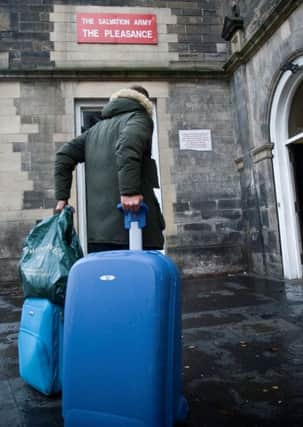£1k gap between benefits and private rents in East Dunbartonshire


The Chartered Institue of Housing has revealed that more than 90 per cent of Local Housing Allowances (LHA) now fail to cover the cheapest rents in the private sector.
It says over the next year, some of the larger properties in East Dunbartonshire will have a gap of more than £1,000.
Advertisement
Hide AdAdvertisement
Hide AdA CIH spokesperson said: “This will make it increasingly likely that renters will be forced to choose between paying for basic necessities like food and heating or their rent.
“This will put them at risk of poverty and homelessness.”
The Herald reported last week that an East Dunbartonshire man was among 94 homeless deaths in Scotland during the past year.
Local Housing Allowance, the way that housing benefit is calculated and paid to tenants of private landlords, was frozen by the government for four years in 2016. The CIH is calling on it to review the policy and end the freeze immediately.
The institute is being backed by Strathkelvin and Bearsden SNP MSP Rona Mackay.
Advertisement
Hide AdAdvertisement
Hide AdShe said: “This is just another example of the callous Westminster policies which are affecting the most vulnerable in society.
“On top of the disastrous Universal Credit, which has already had a terrible effect since the roll out in parts of my constituency, it shows how out of touch this Westminster Government is with the lives of ordinary people.”
A CIH spokesperson added: “Our research makes it clear just how far housing benefit for private renters has failed to keep pace with even the cheapest private rents”.
According to the CIH, renters are facing gaps of over £10 a week on a single room in a shared home, while tenants with properties of one to four bedrooms have even larger gaps.
A UK government spokesperson said: “We spend £24 billion a year on housing benefit every year, including additional, targeted support for low-income households.”